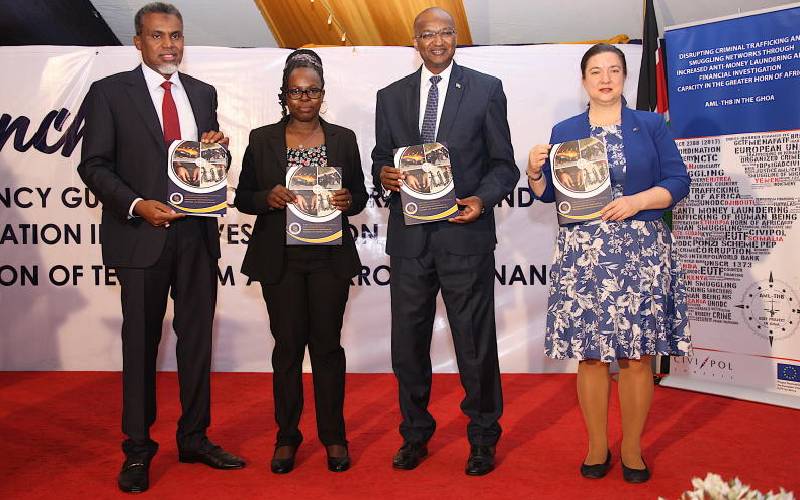×
The Standard e-Paper
Stay Informed, Even Offline

Detectives investigating terror-related cases must first notify the Office of the Directorate of Public Prosecutions (ODPP) in a new raft of measures launched on Tuesday.
Though Anti-Terrorist Police Unit (APTU) sleuths who fall under the Directorate of Criminal Investigations (DCI) will remain the lead agency in investigating suspected cases of terrorism and terrorism financing, such investigations going forward, shall be prosecution guided.